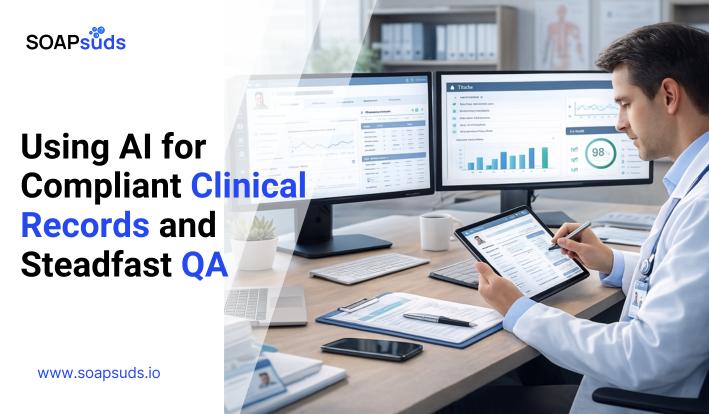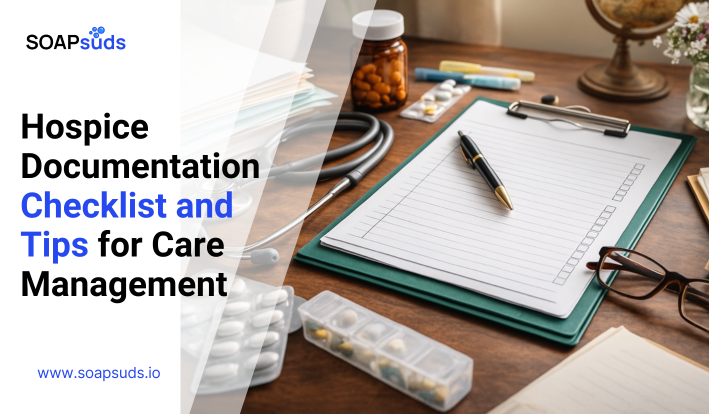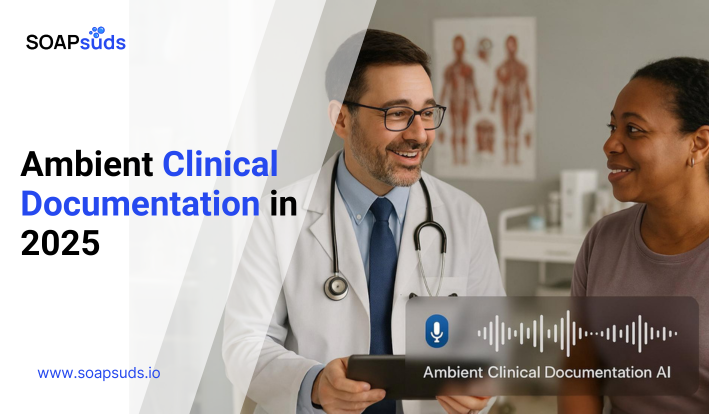How AI is Shaping the Future of Medicine
SOAPsuds team
Published: 1/27/2025
SOAPsuds team
Published: 1/27/2025

In-person conversations and written communication are fundamentally different. When speaking face-to-face, we often include...

AI has become more noticeable in every industry, including healthcare documentation. Using AI in clinical...

As a home health or hospice agency owner, you already know that clinical documentation

Hospice care is a service built on kindness and careful attention. Teams support both the

Self-harming behavior in clients can be one of the hardest challenges a therapist may face.

Ambient clinical documentation is quietly changing how healthcare works. It acts like an unseen helper
Clinical Notes
SOAP notes
DAP notes
AI medical notes